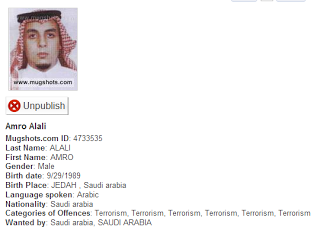 Amro Alali,
Amro Alali,
Dwyer, who began work for the FBI in July 2002, also testified about 29 other emails that Mohamud exchanged with other figures, including a friend identified only as Dawlat.
Alali, who lived in Portland in 2008, is being held in his native Saudi Arabia suspected of his own involvement with al-Qaida.
But Barre followed up by forwarding to the FBI an email link he had received, DeLong said. It concerned a school in Yemen that his son hoped to attend. The correspondence contained the email address truthbespoken@gmail.com, which Mohamud had created in the United Kingdom, DeLong said.
The agent combed through the FBI’s storehouses of electronic data, finding that the address had been tied to the investigation of Samir Khan. He would learn that Mohamud had traded more than 100 emails with Khan beginning in February 2009 and that Mohamud had written articles for Khan under a pen name while a student at Beaverton’s Westview High School.
When DeLong took his findings to a supervisor, the FBI opened an investigation of Mohamud based out of its Portland office. But the case moved to the Eugene satellite office in October 2009 because by then Mohamud was studying at Oregon State University in Corvallis.
Mohamud’s defense team, mounting an entrapment defense, is not disputing the facts of the case.
“He deeply regrets his actions,” they wrote, “and is humiliated and ashamed for what he said and did.”
Mohamud may have “expressed unpopular political ideas and fundamentalist religious beliefs,” but “he was not ready and willing — had not even contemplated — using a weapon of mass destruction in the United States against his fellow citizens,” they wrote.special coverage
But in DeLong’s opinion, relayed in an email to his FBI colleagues, Mohamud’s radicalism had toned down. He was drinking to excess in college, smoking and perhaps selling small quantities of marijuana — way out of bounds for a serious Muslim.
DeLong’s supervisors decided against putting the squeeze on Mohamud. Instead, they wanted agents to assess the young man — then 18 — to find out if he was dangerous. In November 2009, an FBI informant posing as “Bill Smith,” a new Muslim convert living in eastern Idaho, reached out to Mohamud by email.
Amr Solaiman Ali Alali tried to help Mohamud join jihadists in Yemen, the FBI alleges. He went by Amro Alali when he studied biology at Portland State University in 2008. Today he is locked up overseas, presumably in his native country, where it appears he hasn’t been tried for any crime.
Alali’s relationship with Mohamud, which apparently began in Portland, marks a pivotal point in a narrative expected to spill out at Mohamud’s trial in January.
Little is recorded of Alali’s days in Oregon and beyond. What follows is what is known, based on public records, court papers filed by prosecutors and Mohamud’s defense team, interviews with school officials, and recent testimony in Portland’s U.S. District Court.
Alali, born in Jeddah, Saudi Arabia, turned up at North Seattle Community College on Sept. 24, 2007, where he worked toward an associate’s degree until the fall quarter ended that December. He moved to Portland and enrolled at PSU for the winter 2008 quarter. The Saudi government paid his tuition.
It’s unclear when, or where, Mohamud met Alali. But Mohamud’s lawyers suggest in court papers that their client fell under FBI surveillance as early as March 2008, as Alali’s first term ended.
Alali replied on Dec. 12, 2009, passing Mohamud an email address and a password to make contact with a man identified as “Abdulhadi,” the government alleges. But when Mohamud emailed Abdulhadi, he botched the password.
Mohamud, now 21, sat through a motion hearing last June as FBI Special Agent Miltiadis Trousas, who headed the undercover operation, testified about Mohamud’s friend.




